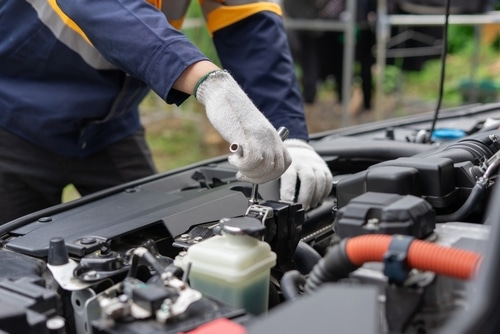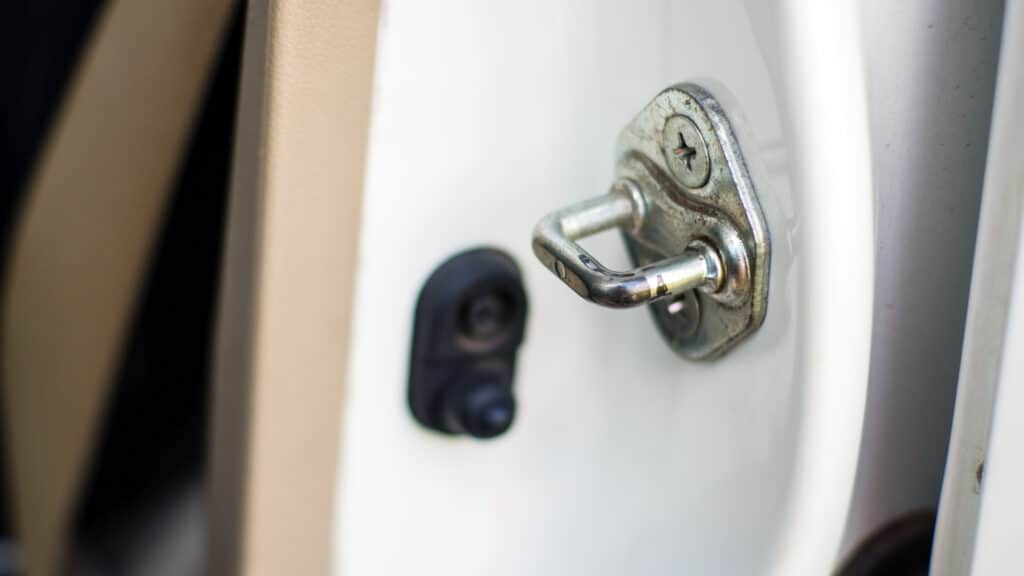After you win a lemon law dispute, the automaker may take back your vehicle and offer you a full refund, minus a deduction based on the mileage you had before your vehicle was defective. Your vehicle is branded as a “lemon law buyback” after arbitration or litigation is completed. This “lemon title,” meaning the repurchase due to repeated defects, remains on the vehicle’s history report. With the California Lemon Law, the title is required to remain on the report indefinitely to protect consumers who are in the market for a used car.
The short answer to the question of “Can lemon law cars be resold?” is yes, they can. Automakers can resell cars with lemon law buyback titles as long as they abide by the rules set forth in the California Lemon Law. If automakers break these rules, they are practicing “lemon laundering,” which is the crime of selling these branded vehicles through wrong and deceitful means.
1. How Can Lemon Law Buyback Cars Be Resold?
An automaker can resell any vehicle that has been repurchased due to a lemon law dispute. However, they must abide by these rules set by the California Lemon Law:
- The vehicle must be branded as a “lemon law buyback.”
- The vehicle must be repaired to conform to the warranty.
- The seller must disclose the vehicle’s lemon title to any prospective buyer, as well as the nature of the defect and repairs made to address the defect.
Under the Automotive Consumer Notification Act, sellers must provide buyers with a notice that clearly states:
“THIS VEHICLE WAS REPURCHASED BY ITS MANUFACTURER DUE TO A DEFECT IN THE VEHICLE PURSUANT TO CONSUMER WARRANTY LAWS. THE TITLE TO THIS VEHICLE HAS BEEN PERMANENTLY BRANDED WITH THE NOTATION ‘LEMON LAW BUYBACK’.”
If the automaker repairs the vehicle, properly brands the vehicle, and discloses the branded title to a prospective buyer, then the sale of the lemon law buyback is legal. However, automakers sometimes attempt to skirt these requirements. An automaker may fail to disclose the lemon title or sell the vehicle in settings where it is easy to disguise the vehicle’s history.
In some cases, a car may experience repeated problems related to a defect but isn’t formally branded as a lemon because it wasn’t purchased under the circumstances protected by the California Lemon Law.
For example, someone may have settled a lemon law case with an auto manufacturer out of court. As a result, the auto manufacturer may have gotten away with not branding the repurchased vehicle, convincing the owner to sign a settlement agreement that states that the vehicle was repurchased out of “goodwill.” This is done out of a desire to disguise the vehicle’s history of defects.
Alternatively, someone may have purchased a defective car from a private seller who fails to disclosed the vehicle’s problematic history. If this person discovers a defect, they cannot file a California lemon law claim because the vehicle was not purchased from a licensed car dealership. In this case, the person might have already sought numerous repairs. They finally decide to stop getting further trouble with the car and just sell it to another private party.
In both scenarios, a car that should have been branded as a lemon slips under the radar, leaving an unsuspecting buyer to inherit its hidden problems.
2. Can A Lemon Title Be Removed From A Defective Vehicle?
The California Lemon Law requires that the lemon buyback title remain on the vehicle’s history report indefinitely. However, it is possible for the auto manufacturer to transfer the vehicle to a state whose lemon law does not have the same disclosure requirements.
This practice is known as “title-washing.” Vehicles with unsavory titles may get transferred across state lines, where conflicting title requirements lead to some inconsistencies in vehicle reports. An auto manufacturer may transfer a lemon buyback branded vehicle to a state with no branding requirement, and therefore disguise the vehicle’s history.
An auto manufacturer may repurchase a lemon vehicle in a state with no notification requirement and then sell the vehicle in another state, which leads to a buyer unwittingly purchasing a lemon buyback vehicle.
3. How Does A Lemon Title Affect The Vehicle’s Warranty?
Contrary to popular misconceptions, a vehicle getting a lemon title does not void the warranty left on it. The automaker has to honor the remaining warranty on the repurchased vehicle. Sometimes, the automaker will offer an extended warranty for the defective part. However, you should avoid purchasing vehicles with lemon titles anyway, as their market value can significantly decrease in the long run. Their discounted prices may be an enticing lure for those who want to purchase a used vehicle for a decent price, especially if the original defect seems minor. However, you should note the following: the manufacturer was given a reasonable number of chances to fix the vehicle before it was repurchased, and was unable to do so. This can put your safety at risk and also lead to costly repairs down the line.
To learn more about your lemon law protections, read our California Lemon Law Guide. If you think you may have a lemon law case, or you have questions about how the California Lemon Law can protect you, call our toll-free number at 833-208-8181 or fill out the consultation form below. A lemon law attorney will be happy to discuss your case and provide guidance on the best course of action.
Lemon Law Help by Knight Law Group is an automotive lemon law firm that exclusively practices in California, with offices in Los Angeles, San Francisco, Sacramento and Orange County. If you are a California resident who purchased or leased a defective vehicle from a licensed dealership in California, we may be able to help you get rid of your potential lemon and recover significant cash compensation. Model year restrictions apply: 2020–Present vehicle models only.
However, we cannot help those who reside outside of California or purchased their vehicle outside of California unless they are active duty members of the Armed Forces, nor will we be able to refer them to a lemon law firm in their states.
To learn more about the California Lemon Law and your legal rights, visit our guide on the California Lemon Law for more information.






